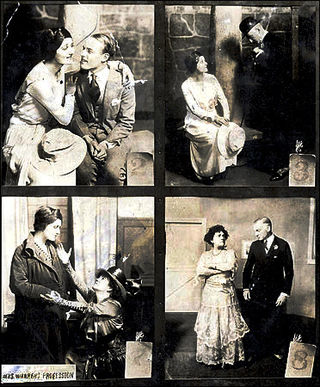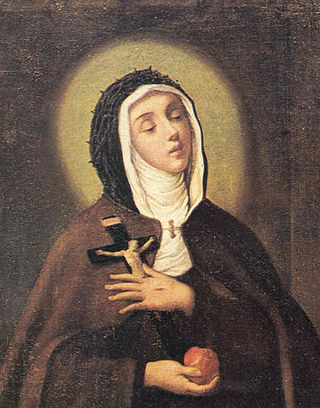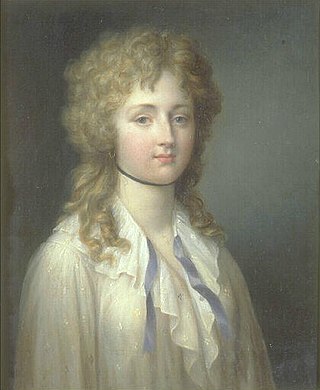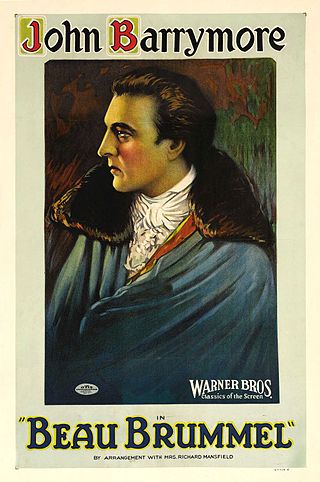
Sense and Sensibility is a novel by Jane Austen, published in 1811. It was published anonymously; By A Lady appears on the title page where the author's name might have been. It tells the story of the Dashwood sisters, Elinor and Marianne as they come of age. They have an older half-brother, John, and a younger sister, Margaret.

The History of Tom Jones, a Foundling, often known simply as Tom Jones, is a comic novel by English playwright and novelist Henry Fielding. It is a Bildungsroman and a picaresque novel. It was first published on 28 February 1749 in London and is among the earliest English works to be classified as a novel. It is the earliest novel mentioned by W. Somerset Maugham in his 1948 book Great Novelists and Their Novels among the ten best novels of the world.

Cranford is an episodic novel by the English writer Elizabeth Gaskell. It first appeared in instalments in the magazine Household Words, then was published with minor revisions as a book with the title Cranford in 1853. The work slowly became popular and from the start of the 20th century it saw a number of dramatic treatments for the stage, the radio and TV.

Mrs. Warren's Profession is a play written by George Bernard Shaw in 1893, and first performed in London in 1902. It is one of the three plays Shaw published as Plays Unpleasant in 1898, alongside The Philanderer and Widowers' Houses. The play is about a former prostitute, now a madam, who attempts to come to terms with her disapproving daughter. It is a problem play, offering social commentary to illustrate Shaw's belief that the act of prostitution was not caused by moral failure but by economic necessity. Elements of the play were borrowed from Shaw's 1882 novel Cashel Byron's Profession, about a man who becomes a boxer due to limited employment opportunities.

Friday's Child is a novel written by Georgette Heyer in 1944. It is generally considered one of Miss Heyer's best Regency romances, and was reportedly the favourite of the author herself. Heyer retained only a single fan letter, which was from a Romanian political prisoner who kept herself and her fellow prisoners sane for twelve years by telling and retelling the plot of Friday's Child.

Cotillion is a Regency romance novel by Georgette Heyer published in 1952. It is one of the most light-hearted of Heyer's romances, avoiding the mystery, intrigue, and sensational events present in many of her novels. The story is set in 1816.
Georgie Glen is a Scottish actress, known for her film and television work in both dramatic and comedic roles. Among her most popular performances are the running characters of Miss Higgins in the BBC One period drama series Call The Midwife from 2018 onwards, and of history teacher Audrey McFall in the BBC One school-based drama series Waterloo Road from 2012 to 2015.

Eugenie Besserer was an American actress who starred in silent films and features of the early sound motion-picture era, beginning in 1910. Her most prominent role is that of the title character's mother in the first talkie film, The Jazz Singer.

Veronica Giuliani was an Italian Capuchin Poor Clares nun and mystic. She was canonized by Pope Gregory XVI in 1839.

The Governess; or, The Little Female Academy by Sarah Fielding is the first full-length novel written for children. As such and in itself it is a significant work of 18th-century children's literature.

Margaret Seddon was an American stage and film actress.

Back Street is a 1941 American drama film directed by Robert Stevenson and starring Charles Boyer and Margaret Sullavan. It is a remake of the 1932 film of the same name, also from Universal. The film is adapted from the 1931 Fannie Hurst novel and the 1932 film version which it follows very closely, in some cases recalling the earlier film scene-for-scene. It is a sympathetic tale of an adulterous couple.

Celestina is an eighteenth-century English novel and poet Charlotte Smith’s third novel. Published in 1791 by Thomas Cadell, the novel tells the story of an adopted orphan who discovers the secret of her parentage and marries the man she loves. It is a courtship novel that follows the typical Cinderella plot while still commenting on contemporary political issues.

Sarah Ann Padden was an English-born American theatre and film character actress. She performed on stage in the early 20th century. Her best-known single-act performance was in The Clod, a stage production in which she played an uneducated woman who lived on a farm during the American Civil War.

Louise Adélaïde de Bourbon was a French nun. She was the last Remiremont abbess and founded at the beginning of the Bourbon Restoration a religious community that became famous among French Catholics under the name of Bénédictines de la rue Monsieur. She constructed the Hôtel de Mademoiselle de Condé, named after her.

Sense and Sensibility and Sea Monsters (2009) is a parody novel by Ben H. Winters, with Jane Austen credited as co-author. It is a mashup story containing elements from Jane Austen's 1811 novel Sense and Sensibility and common tropes from sea monster stories. It is the thematic sequel to another 2009 novel from the same publisher called Pride and Prejudice and Zombies. It was first published by Quirk Books on September 15, 2009.

Beau Brummel is a 1924 American silent historical drama film starring John Barrymore and Mary Astor. The film was directed by Harry Beaumont and based upon Clyde Fitch's 1890 play, which had been performed by Richard Mansfield, and depicts the life of the British Regency dandy Beau Brummell.

Barbara Everest was a British stage and film actress. She was born in Southfields, Surrey, and made her screen debut in the 1916 film The Man Without a Soul. On stage she played Queen Anne in the 1935 historical play Viceroy Sarah by Norman Ginsbury. Her most famous rôle was as Elizabeth the rather deaf servant in Gaslight (1944).
Heather Wilde is an English actress who was active in stage and screen productions in both England and the United States between the late 1930s and 1950s. In films she was often cast in small uncredited roles. Wilde is perhaps best known today for her performances as a supporting character in two popular, critically acclaimed American comedies: as the primping little actress Miss Plupp in The Bank Dick (1940) starring W. C. Fields and as the anxious housemaid Annie in Life with Father (1947) starring William Powell and Irene Dunne.
Sarah Maria Wilson was an English actress.















